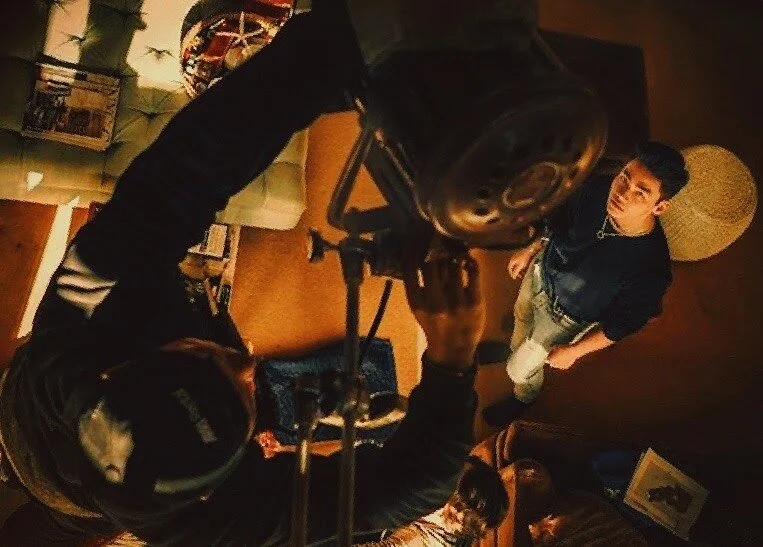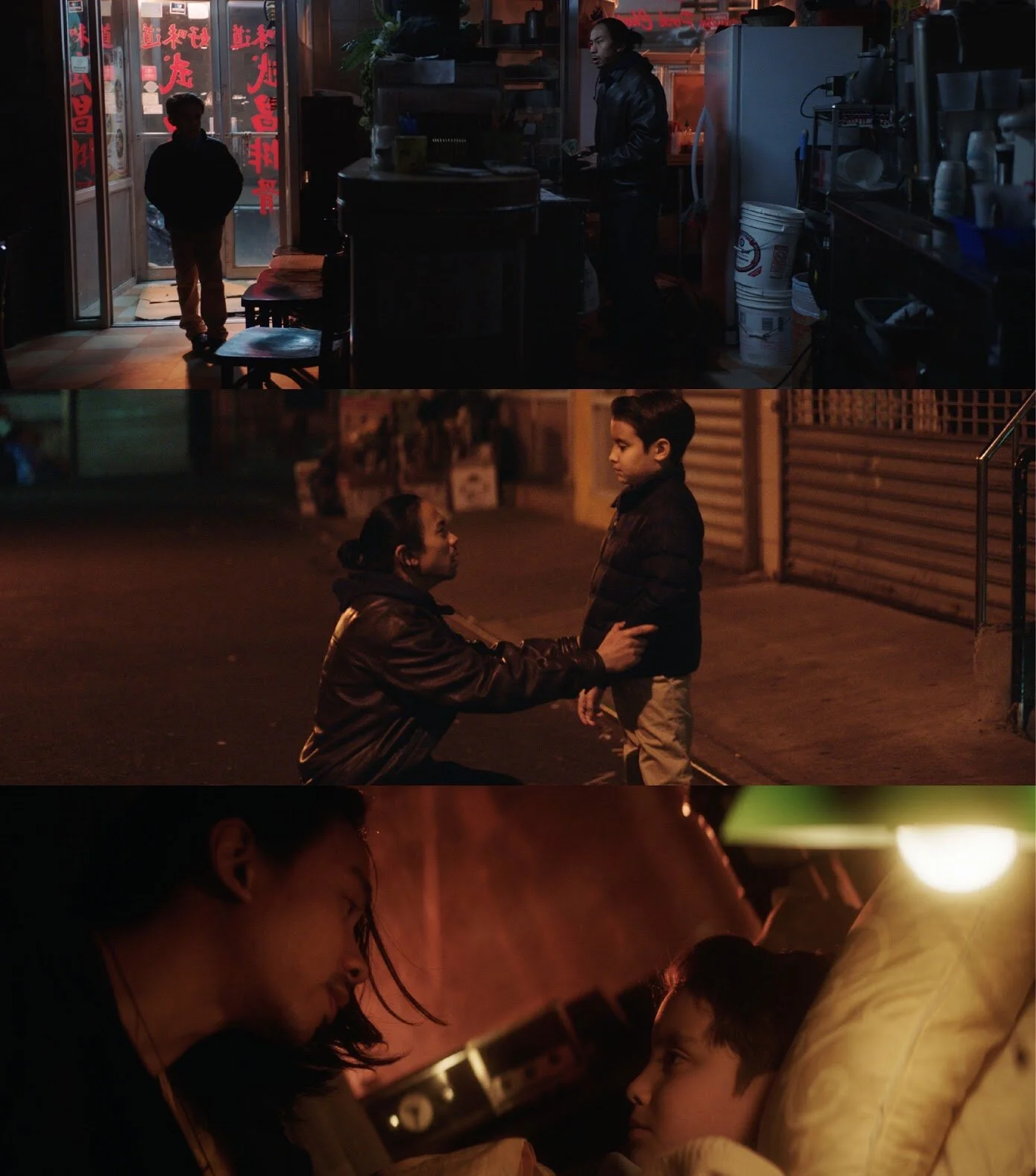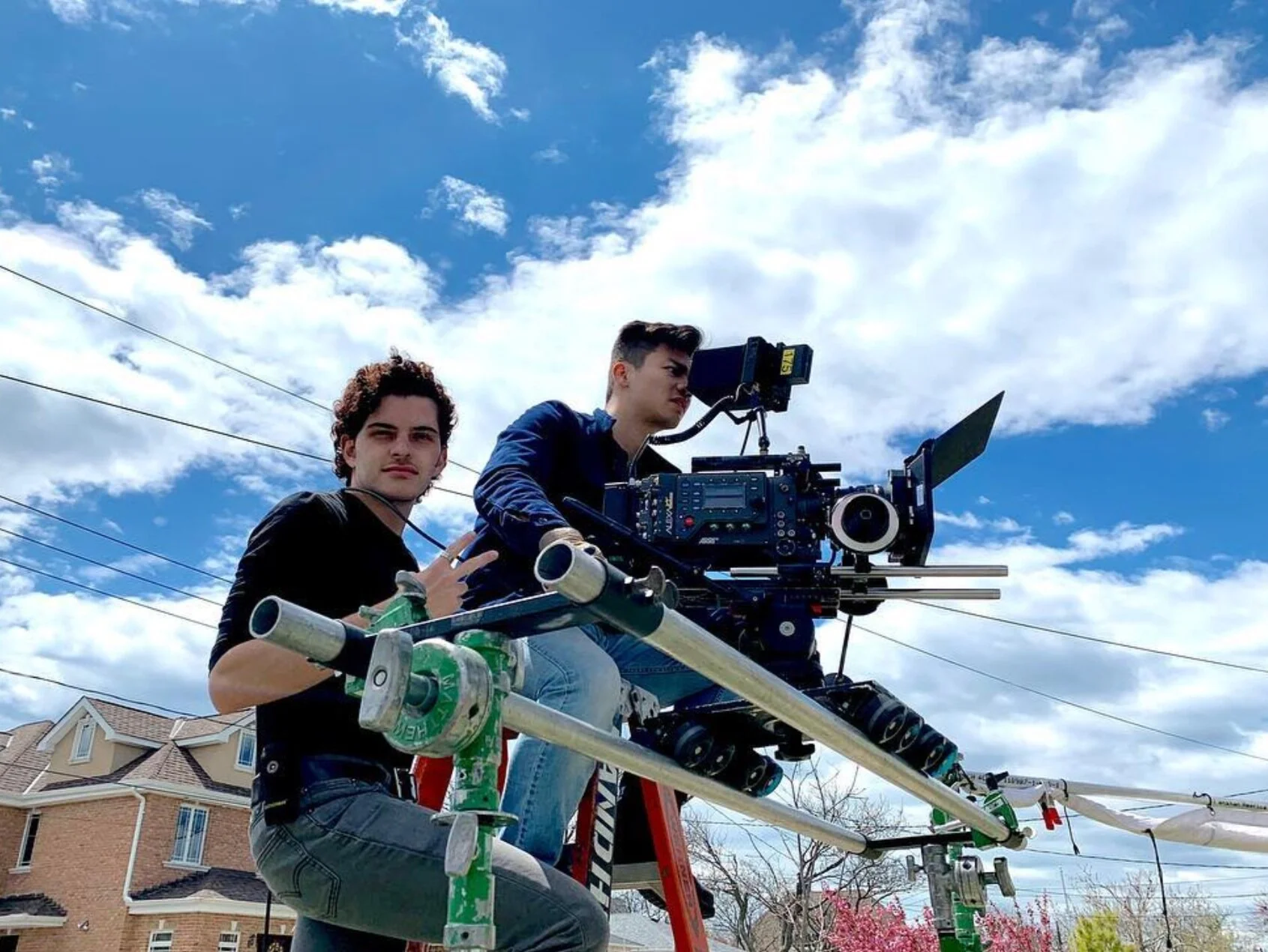Profile | September 28, 2020
By Erik Oliver | Editor: Christiana Miller-King
San Yvin: More Than Autobiography
San Yvin is searching for new horizons. Through various forms of media, he has formed a body of work that encompasses genres as far-reaching as stop-motion surrealism, culinary documentary, and gritty social realism. With his new film Flystruck, which sees him working with his largest budget and most intricate script yet, Yvin is elevating his sense of precision and purpose within the craft.
Yvin’s first forays into the arts began as a ten-year old growing up in Hanoi, Vietnam. He experimented with oil painting, and then at age twelve expanded into digital photography. Both informed the first video he ever made, a birthday present for his mom’s 40th birthday that depicted him painting her portrait to the audio of a Coldplay song. Excited by the possibilities found within editing and crafting sequences, he taught himself how to edit by making progressively more ambitious projects. He began to intercut his films with footage of friends and family, ultimately creating moving images of the people in his portraits. This new element broadened his scope of portrait work by adding the complexity of movement to non-motion work. As Yvin craved innovation, his technique rapidly advanced, allowing him to tell stories in new ways. From there, it was short films made with his friends and eyes turned to film school in New York.
Once at NYU, Yvin pushed his limits further, making tragicomic farces about spilled milk (and dead milkmen), and capsule fantasies where bits of clay or toothpaste come alive and start moving around. In a music video he made for a class, a young boy climbs out his window into a dreamscape and sees a woman with a dragon’s head dancing. Yvin speculates that he’s attracted to fantasy and surrealism because of its malleability.
“This dream world has no physical rules, and anything is possible,” he says. “I think that’s what I love about filmmaking too. Any ideas that appear in your head can be manufactured and shaped onto the screen.”
As exploratory as his work has been, Yvin returned to his childhood as he developed the screenplay for his most recent, and most ambitious, project: his new short film Flystruck. Coming off a previous short, Lift Off, that left him dissatisfied, Yvin decided he could write a more impactful film by telling a more personal story. He turned to his memories for inspiration. Growing up in a family of restaurateurs, and living in the three different restaurants his parents worked at, he got to know members of staff intimately. He specifically remembers the woman who bought the groceries for the first restaurant he lived in, a French-Vietnamese bistro in Hanoi named Cyclo Bar.
“We would go to the market together and I would always tag along,” he recalls. “She and I were inseparable. I even had sleepovers at her house when my parents were too busy. I think I wanted to recreate this bond between the staff and the child of a restaurateur.” For Yvin, remembering them in his work is more than autobiography. “The people I grew up around were incredibly influential to my childhood, and I want to tell their stories. I don’t want them to be ignored or shunned away from the screen.”
Flystruck may not reflect Yvin’s exact experience, since it takes the shape of a high-stakes thriller, but it’s easy to feel the intimacy he evokes. In Flystruck, an undocumented Chinatown dishwasher named Tu confronts his boss about pay and when she threatens to call the authorities, he frantically strikes her, and while she lies unconscious, he is then forced to take care of her son, Dan. Set against high stakes and a pivotal moment of violence, Flystruck lingers on the connection between Dan and Tu, which takes a surprisingly tender turn. Yvin’s careful, intimate dialogue gives their relationship a strong emotional weight in a limited timeframe, making them the clear heart of the piece.
From the thriller genre to moments of Wong Kar-Wai-inspired cranked-down framerates, Flystruck marks a number of firsts for Yvin. It’s the biggest budget he’s worked with and he had a five day timeframe to shoot a dense script. “Flystruck was a huge experiment,” Yvin says. “I’ve never learned so much in such a short period of time.” The shoot ended up being a difficult one; with logistical constraints and not enough time to shoot the ending as originally planned, the crew had to improvise. Still, Yvin has stories of impressive invention — creating the feel of a functioning kitchen while prohibited from using open flames, breaking down walls and using strategic lighting to turn a spacious Brooklyn apartment into a cramped Chinatown studio — that reveal a determination not only to tell his story, but also to collaborate with a talented crew, especially production designer Sophia Uehara and cinematographer Derrick Chen. Together, their work was critical to shaping the ideas that make up Flystruck, and it shows on the screen.
Though Flystruck is a big leap forward for Yvin, it still maintains strong ties to his film roots. As he explores different genres and styles, certain ideas slip through. Yvin points to the film’s opening underwater shot, in which we look at Tu from inside the restaurant sink, bits of food floating across the frame. It’s strikingly similar to a shot in Yvin’s NYU submission film Under the Bridge, in which Yvin submerges his head in a fish tank, surrounded by swirling goldfish.
“I’ve noticed that I tend to recreate similar images, without doing it on purpose,” he says. Even as he slips into new territories, his work retains its throughlines. As Yvin continues to cross genres and even continents, he finds ways to keep pushing the angles that remain resonant.
Currently, Yvin is developing his dream project — a multi-generational historical epic for TV, about a Vietnamese family building a food empire. As he begins writing and planning the series, he faces a variety of new challenges: mountains of research and interviews, writing for an entirely new medium, and navigating a complicated history of Vietnamese cinema. Yet Yvin looks at them with excitement. “There are so many stories to tell,” he says. And it’s clear that he’s going to find a way to tell them.




